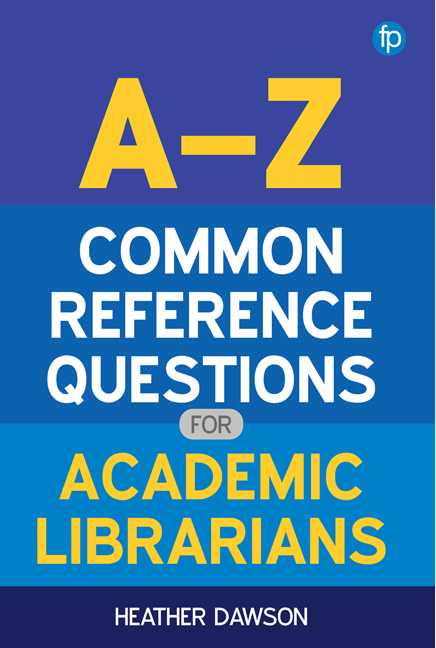Acronyms and Abbreviations
Published online by Cambridge University Press: 19 March 2020
Summary
Typical questions
• What does OHCHR stand for?
• I need to find Br. Med. J.
Starting points
• Reading lists often contain acronyms and abbreviations. Many library catalogues will not search properly for abbreviated journal titles or author/organisation names. Students will usually need to find the full title first.
• Problems can arise from Latin abbreviations. Common examples include:
• et al. – this is an abbreviation of the Latin phrase et alii, meaning ‘and others’. When a source has more than two authors, it is common to give the name of the first author only and follow it with ‘et al.’ rather than writing all the names.
• Ibid. – an abbreviation of the Latin ibidem, meaning ‘the same place’. The citation refers to the same work as that cited in the preceding reference.
• Mimeo – an unpublished academic paper.
• Op. cit. – an abbreviation of the Latin opere citato, meaning ‘in the work already cited’. Look back to earlier in the list to get the full publication details, e.g. for Milan, op. cit., p. 5, refer to the previous mention of Milan for the full citation.
• Loc. cit. – is an abbreviation of the Latin phrase loco citato, meaning ‘in the place cited’. It refers to the work in the immediately preceding reference and can be used instead of ibid. when all the citation details (including page numbers) are identical.
Journal titles may be abbreviated. First check the list to see if there is a key to those used as they may be non-standard! If not, try the resources listed below. Also useful are the subject sections of this book. Look in particular at Law and International Organisations. The Dictionaries and Encyclopedias chapter also lists major reference databases that contain abbreviations examples.
Recommended resources
Acronym Finder
www.acronymfinder.com
Well-regarded free website. Over 1 million acronyms and abbreviations covering all subject areas. Has sub-categories for different types of information including information technology, medicine and popular culture.
All That JAS
www.abbreviations.com/jas.php
Journal Abbreviation Sources is a directory of websites where journal abbreviations can be found. These include library catalogues and commercial catalogues. It is possible to browse by subject area.
Genamics JournalSeek
journalseek.net
Authoritative resource produced as part of the WorldCat Knowledge Base. Has links to the journal homepage.
- Type
- Chapter
- Information
- Publisher: FacetPrint publication year: 2019



